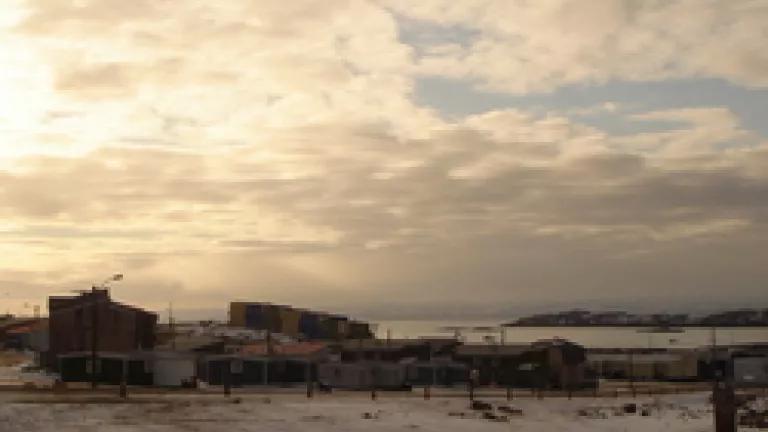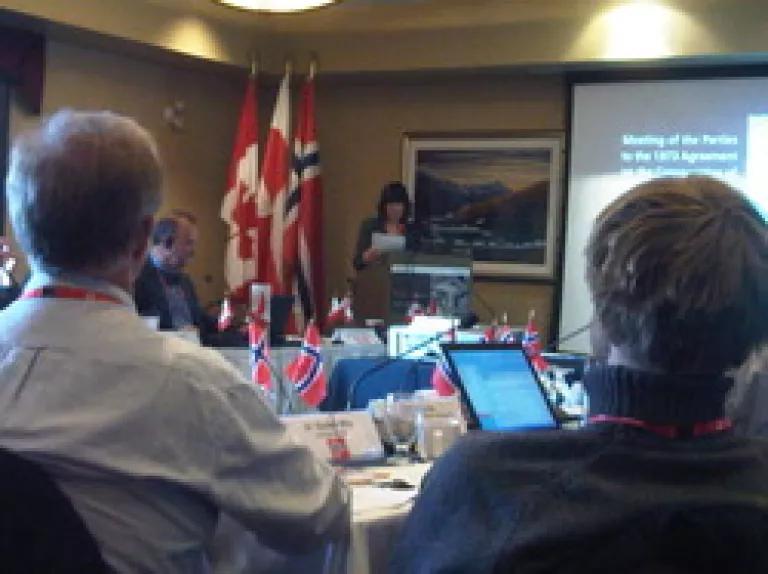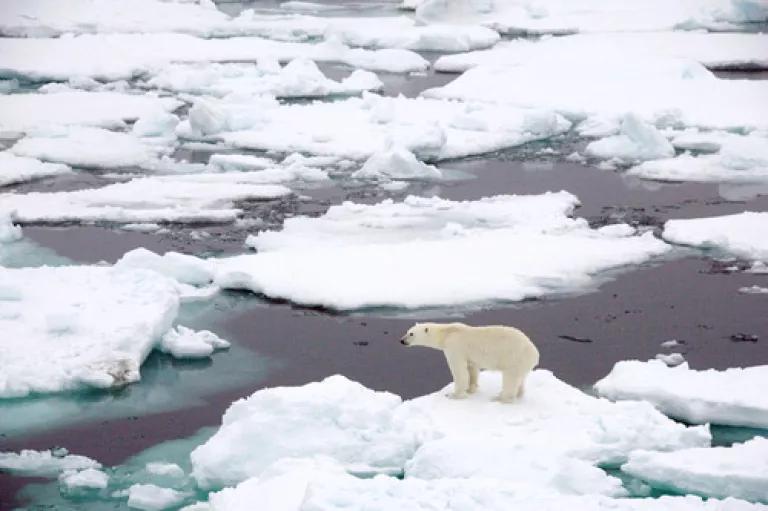Dispatch from the North--Some Weak Sauce Served at the 1973 Agreement on the Conservation of Polar Bears

This week I attended a meeting of the parties to the 1973 Agreement on the Conservation of Polar Bears, which was held in Iqaluit, Nunavut, Canada. It was wonderful to have the opportunity to visit Nunavut and to meet people from across the region (particularly representatives of Inuit communities) and to exchange views.
The meeting itself was important--bringing together representatives from the five polar bear "range states" (Russia, the United States, Canada, Greenland/Denmark, and Norway) to discuss polar bear conservation--and I think some real progress was made.
One of the highlights of the meeting was a compelling presentation from the International Union for the Conservation of Nature's "Polar Bear Specialist Group," the Agreement's formal scientific advisor. The presentation was made by Dr. Steven Amstrup and Dr. Ian Sterling, two of the foremost polar bear scientists in the world.
Dr. Amstrup focused on the overall trend of climate change in the region and the likely effect of warming on sea ice patterns in the Arctic and bear populations; Dr. Sterling talked specifically about effects that were already being felt by bears in specific areas, such as western Hudson Bay. While the presentation acknowledged that climate change would not effect all bears at the same time and could even temporarily benefit some bear populations (by, for example, making seals more accessible to them), both he and Dr. Sterling were very clear that, ultimately, climate change poses a mortal danger to polar bears as a species. If we don't do something about climate change, Dr. Amstrup warned at the end of his presentation, we all risk becoming nothing more than "polar bear historians."
Having heard this powerful message, I was a bit stunned when, after being excluded from much of the meeting's debates (as were all observes), I saw the final report of the meeting, which says this about the specialist group's presentation:
As noted in the 2007 and 2009 reports of the Range States Meetings, climate change continues to have a negative impact on polar bears in portions of their range and remains the most important threat to their long-term range-wide security. The PBSG noted that changes in sea ice are not expected to affect polar bears in all portion of their range at the same time or in the same ways and that polar bears in some portions of their range may see transient but significant benefits from a milder climate. Conservation plans for polar bears must consider highly variable transient effects as well as predictable ultimate effects of the global warming challenge.
This is a very carefully worded paragraph. Note that the language never uses the word "survival" (instead substituting the somewhat inappropriate word "security") and goes out of its way to emphasize the "transient but significant benefits" that climate change may give some bear populations (implying, of course, that harvest levels could perhaps be increased for these populations). Also, notice that while the language refers to the "predictable ultimate effects" of global warming on polar bears, it doesn't actually recount what those are--i.e., massive range-wide declines with a significant probability of total extinction.
While subtle, much of this language represents a very real resistance on the part of some range states to acknowledging the full and likely scope of global climate change on polar bear populations specifically, and the Arctic in general. Why? Well, I can only speculate

since I was not present to hear the language negotiated, but fully acknowledging the plight of polar bears would call into questions some of the harvest levels set for bears (as well as the continuing wisdom of ongoing commercial trade in polar bear parts). It would also, and perhaps even more uncomfortably, put pressure on the Canadian federal government to, you know, do something about climate change. That's an agenda Canada has not been very receptive to in the past and is blatantly at odds with its continuing efforts to open up and exploit tar sands in Alberta, a potentially huge new source of global warming emissions.

